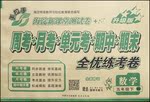Lots of students shop to reduce stress or just to kill time with their friends. Shopping to get rid of boredom or to escape from life’s pressures may lead to serious problems. When you start to shop out of control, you become a shopping addict.
Shopping addicts show signs that are similar to other addicts. Some students think that shopping, even as little as buying gifts for classmates, can make them feel better and forget their problems. Actually, it can make them feel worse, guilty, or even cause them to run into financial difficulties. Finding yourself in a financial struggle or deep in debt may harm your relationships with friends and parents.
Do you go shopping for just a few things and come home with your wallet empty? Do you always go shopping after an emotional trauma or when life feels tough(艰难的)? Do you regret later what you buy? Or do you buy things that you never use? Maybe your parents or friends have expressed disagreement that leads you to hide items or lie about prices.
Avoid any environment that may make you want to spend money. Never use credit cards. Form some other meaningful and beneficial hobbies. Exercise, yoga and hot baths generally may help you not want to shop. Take a drive through the country where there aren’t any stores. Have patience with yourself and your money, which can benefit you for the rest of your life.
60. According to the passage, shopping addicts ______.
are always rich people B. get well along with friends
C. may suffer financial difficulties D. all the above
61. The third paragraph mainly tells about ______.
ways to get rid of shopping addiction
the signs of shopping addicts
the danger of shopping addiction
why shopping addicts can’t stop shopping
62. The underlined word “trauma” probably means “______”.
hurt B. satisfaction C. enjoyment D. appreciation
63. The intended readers of the passage are ______.
teachers B. doctors C. students D. education

 手拉手全优练考卷系列答案
手拉手全优练考卷系列答案